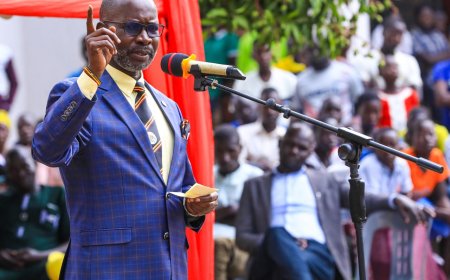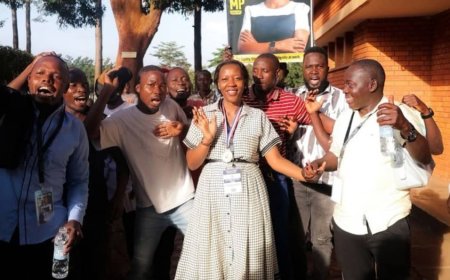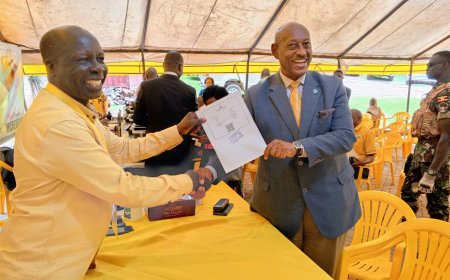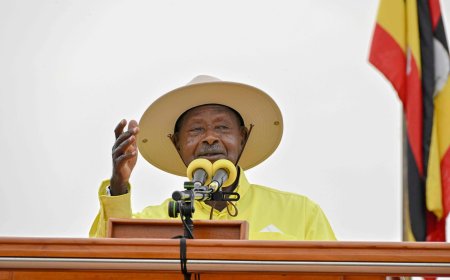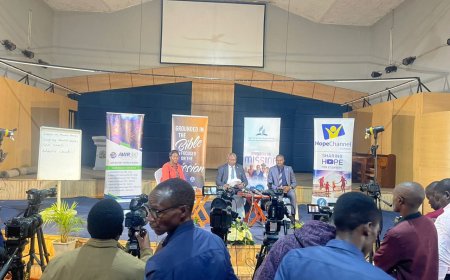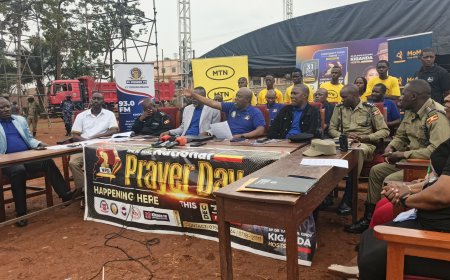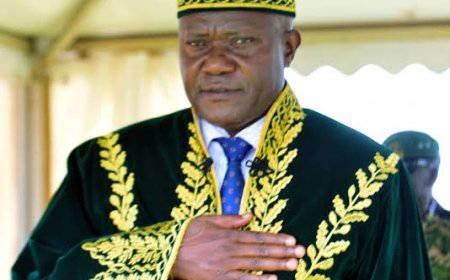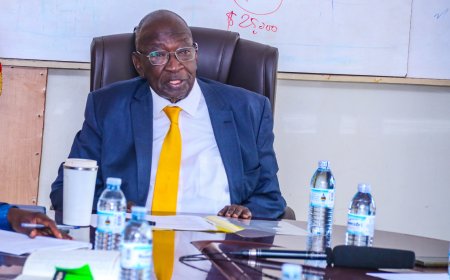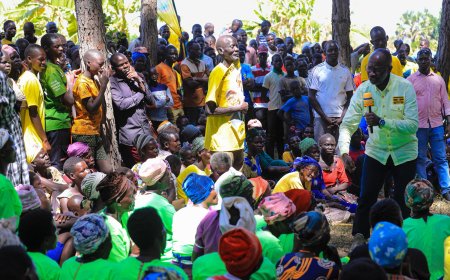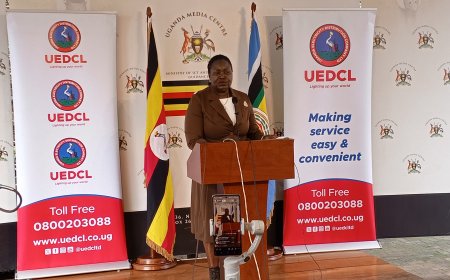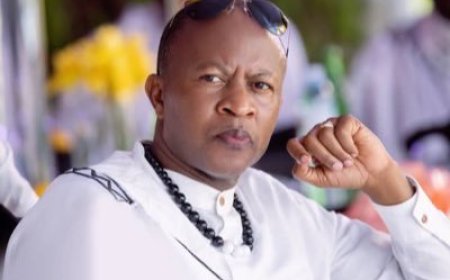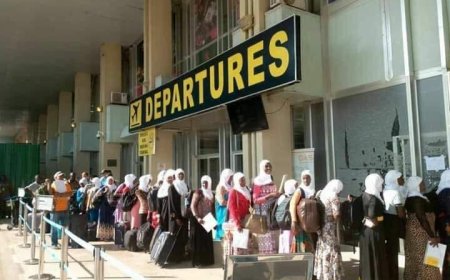Hon. Fredrick Ruhindi’s Contribution to Resolving the Mutungo Land Issue
His advocacy for compensating titled owners, securing bibanja holders’ land titles, and shifting focus towards productive land use remains a crucial step in ensuring justice. His call to engage the government for a final resolution reflects his enduring commitment to land justice in Uganda.

The historical land injustice spanning over 125 years, has been a subject of significant legal and political discourse in Uganda. Among the key figures who have played a crucial role in addressing this issue is Hon. Fredrick Ruhindi, former Member of Parliament for Nakawa Constituency, former Deputy Attorney General, and Minister of State for Justice and Constitutional Affairs. His contributions in legislative, legal, and advisory capacities have been instrumental in shaping land policies that protect bibanja (lawful and bona-fide occupants) holders and ensure justice for all stakeholders.
Understanding the Mutungo Land Issue
The Mutungo land saga is one of Uganda’s most complex historical land disputes, involving claims from Mengo representatives, private individuals, and institutions. The case is emblematic of broader land challenges in Uganda, where legal ownership, customary tenure, and historical injustices intersect.The main concerns revolve around:
Land grabbing and impunity in land transactions.
Disputes between titled owners and bibanja holders.
The legal protection of occupants under Uganda’s land laws.
Compensation for titled landowners to ensure security for bibanja holders.
Hon. Ruhindi has played a crucial role in addressing these challenges through policy formulation, parliamentary debate, and participation in commissions of inquiry.
Hon. Ruhindi’s Legislative and Policy Contributions
Contribution to the Land Act of 1998
In the late 1980s and early 1990s, as a young State Attorney in the Ministry of Justice, Hon. Ruhindi was part of a consultancy team on land matters that contributed to the drafting of the Land Act of 1998. The Act was a landmark law that sought to protect bibanja holders from arbitrary evictions by landlords. Key provisions included:
Recognizing lawful and bona fide occupants as legal land users.
Providing legal protection against forced evictions.
Establishing mechanisms for resolving land disputes amicably.
This law laid the foundation for future land reforms and remains a key reference point in resolving land injustices, including the Mutungo land issue.
Chairing the Select Committee on Land Amendments (2004)
As a backbencher in the 7th Parliament,
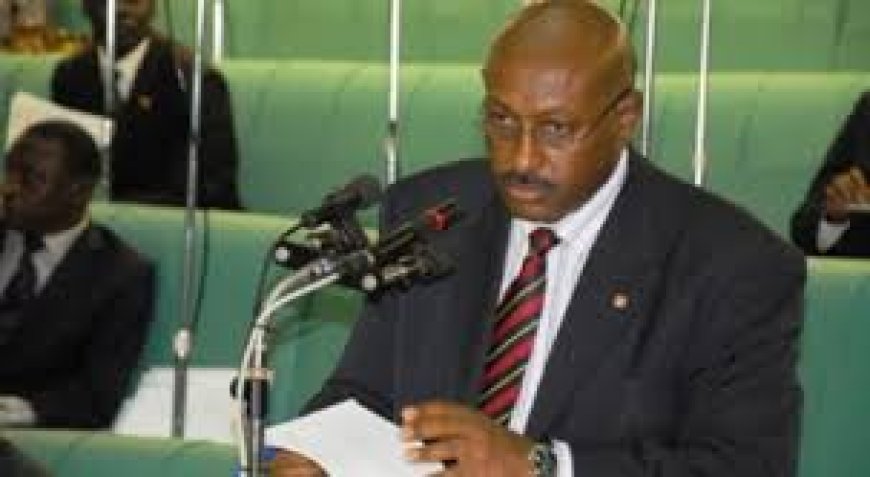
Hon. Ruhindi played a pivotal role in the 2004 amendments to the Land Act. A major point of contention at the time was the issue of busulu (nominal rent paid by tenants to landlords). Wealthy landlords wanted busulu pegged on market value, a move the government opposed.
Hon. Ruhindi was appointed Chairperson of the Select Committee on Land Amendments, which resolved:
That busulu should remain nominal to protect tenants from exorbitant rent demands.
That landlords should not have the power to evict tenants arbitrarily.
That land disputes should be resolved through structured legal frameworks rather than forceful evictions.
The committee’s report, adopted by Parliament, reinforced the legal protections for bibanja holders, preventing landlords from using economic means to push them off the land.
Role in the Land Act Amendments of 2010
In 2010, as Deputy Attorney General and Minister of State for Justice and Constitutional Affairs, Hon. Ruhindi played a critical role in shaping another round of land amendments. The amendments:
Strengthened security of tenure for bibanja holders.
Introduced stricter legal measures against land evictions.
Expanded government intervention in historical land injustices, including compensation for landowners.
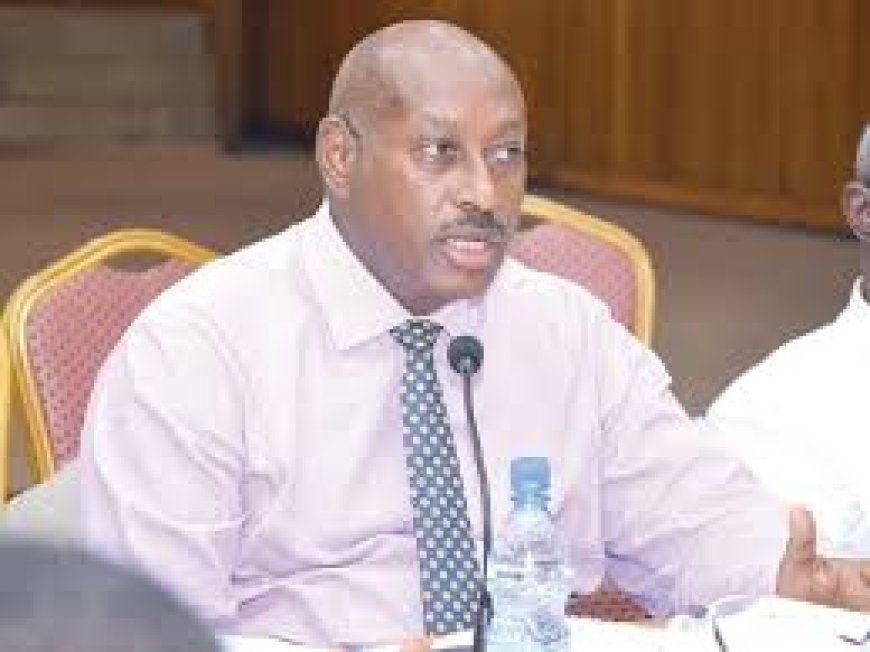
These reforms were instrumental in ensuring that, regardless of the outcome of the Mutungo land dispute, bibanja holders would have legal protection.
The Commission of Inquiry into Land Matters (2017-2020)
After his tenure in Parliament and government, Hon. Ruhindi was appointed a Commissioner on the Commission of Inquiry into Land Matters in 2016, which officially began work in May 2017. The commission, led by Justice Catherine Bamugemereire, investigated land injustices, fraud, and illegal evictions.
Findings Related to Mutungo Land
During the commission’s investigations, Hon. Ruhindi and his colleagues:
Engaged Mengo representatives and the late Kasasa (one of the claimants to Mutungo land) to understand their legal positions.
Discovered evidence of land grabbing and impunity in land transactions.
Noted that many cases were still in court, which limited the commission’s power to directly intervene.
While the commission did not have judicial authority to resolve disputes, its recommendations highlighted the need for government action, including:
Compensating titled owners to resolve disputes permanently.
Ensuring bibanja holders secure their own land titles.
Strengthening government intervention in fraudulent land transactions.
Hon. Ruhindi has consistently emphasized that land ownership must be balanced with land use, arguing that Uganda should shift its focus towards productive land utilization rather than mere possession.
Advocacy for Government Compensation and Title Regularization
Even after his official roles in Parliament and government, Hon. Ruhindi continues to advocate for a final resolution to the Mutungo land issue. His recommendations include:
Government should compensate titled landowners to clear legal disputes.
Bibanja holders should receive their own land titles for full security.
Strengthening the implementation of the Land Act, Constitution, and Limitation Act to prevent future land disputes.
The Condominium Law and Its Relevance to Land Use
Beyond traditional land ownership disputes, Hon. Ruhindi has also been a promoter of the Condominium Law in Uganda, which allows individuals to own sectional property in high-rise buildings. He cites his own Bugolobi Apartment, where he has lived since 1981, as an example of efficient land use.
This perspective is relevant to the Mutungo land issue, as Uganda grapples with land scarcity and disputes over ownership. Encouraging vertical development (high-rise apartments) instead of horizontal expansion could help reduce land conflicts and ensure better utilization of available land.
A Call for Final Resolution
Hon. Fredrick Ruhindi’s contributions to resolving the Mutungo land issue and broader land injustices in Uganda are significant. From shaping the Land Act of 1998, chairing parliamentary committees on land amendments, playing a key role in the 2010 land law reforms, and serving on the Commission of Inquiry into Land Matters, his work has laid the groundwork for a fairer land tenure system.
His advocacy for compensating titled owners, securing bibanja holders’ land titles, and shifting focus towards productive land use remains a crucial step in ensuring justice. His call to engage the government for a final resolution reflects his enduring commitment to land justice in Uganda.
As Uganda continues to grapple with land disputes, Hon. Ruhindi’s experience, legal expertise, and policy recommendations provide a clear path toward sustainable solutions.
